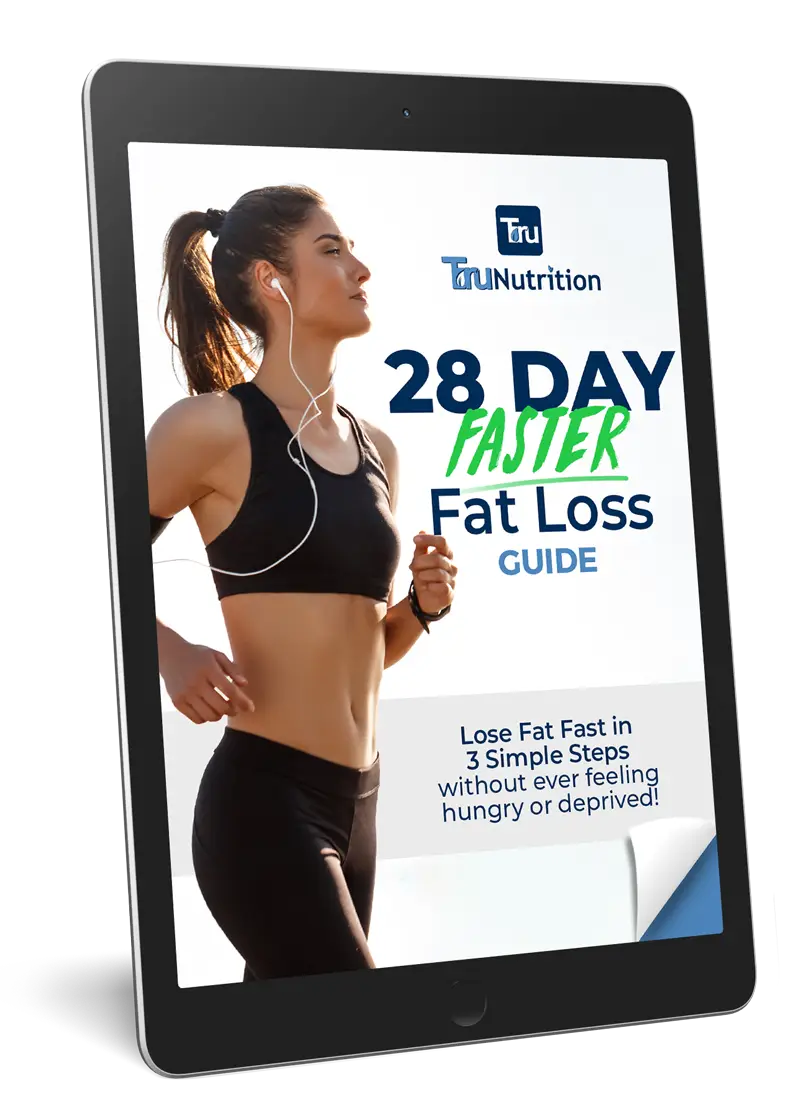
This FREE GUIDE provides a step-by-step, easy-to-use process for fat loss! 🔥🔥
*individual results may vary
Learn how to BURN FAT
without giving up carbs and alcohol!
Get your FREE guide - instantly!

If you’re over 40 and struggling with your weight, you’re not alone. Many people find it more challenging to lose weight and maintain their desired body shape as they age. But why is this the case, and what can you do about it?
Firstly, research shows that the average person gains one to two pounds per year from early adulthood through middle age, with the largest gain occurring in their twenties. However, as we reach our forties and fifties, the accumulation of extra pounds can become more evident. One reason for this is that we begin to lose muscle mass every decade from our thirties, which is replaced with fat. Since muscles use up more calories than fat, having less muscle results in a slower metabolism and reduced calorie requirement.
But lifestyle changes, such as decreased physical activity or an increase in eating out, may also contribute to middle-age weight gain. The good news is that you can take steps to slow down muscle loss and offset the natural age-related decline in metabolism. Adding weight training to your exercise routine can help maintain muscle mass and increase your calorie requirement. Additionally, increasing protein intake while maintaining calorie balance can help keep you fuller for longer. Ideal protein sources include chicken, fish, nuts, tofu, and pulses.
Avoiding large weight fluctuations, especially through yo-yo dieting, can also be beneficial for weight control in the long term. Studies have shown that frequent yo-yo dieting can result in a greater increase in body weight over time, especially among those who started dieting young while still having a healthy body mass index.
It’s worth noting that a stable, slightly overweight status can be healthy in older people. However, the line between “a little extra padding” and unhealthy weight is thin, and it can change around menopause. Reduced estrogen levels can cause spare pounds that once sat on the hips to redistribute to the stomach, increasing the risk of heart disease and diabetes.
To assess your risk, measure a piece of string the same length as your height and cut it in half. If the half-length string fits around your waist comfortably, there is no need for action. However, if it doesn’t meet, it would be wise to address any weight gain and take steps to maintain a healthy weight.
In conclusion, while it may be more challenging to lose weight and maintain your desired body shape as you age, there are steps you can take to mitigate these effects. Incorporating weight training, increasing protein intake, and avoiding yo-yo dieting are all effective strategies for maintaining a healthy
If you’re struggling with weight loss and looking for more guidance and support, consider joining our membership program today. Our community of like-minded individuals and expert coaches can provide you with the tools and motivation you need to achieve your weight loss goals.

Click here >> https://form.typeform.com/to/mUi3NSuc to learn more and join us on the journey to a healthier, happier you!

As the last vestiges of winter melt away and the world bursts into a vibrant tapestry of green, there’s a palpable sense of renewal in the air. Spring isn’t just a season of blooming flowers and chirping birds; it’s a powerful metaphor for our own potential for growth...

The dawn of a new year often brings with it a surge of motivation and a desire for self-improvement. Many individuals capitalize on this renewed energy by setting ambitious goals, often in the form of New Year's resolutions. While both resolutions and goals share the...

The holiday season is a time of joy, cheer, and, unfortunately, overindulgence. With festive feasts, sugary treats, and countless social gatherings, it can be challenging to maintain a healthy balance. However, it’s essential to remember that a few weeks of overeating...
Notifications